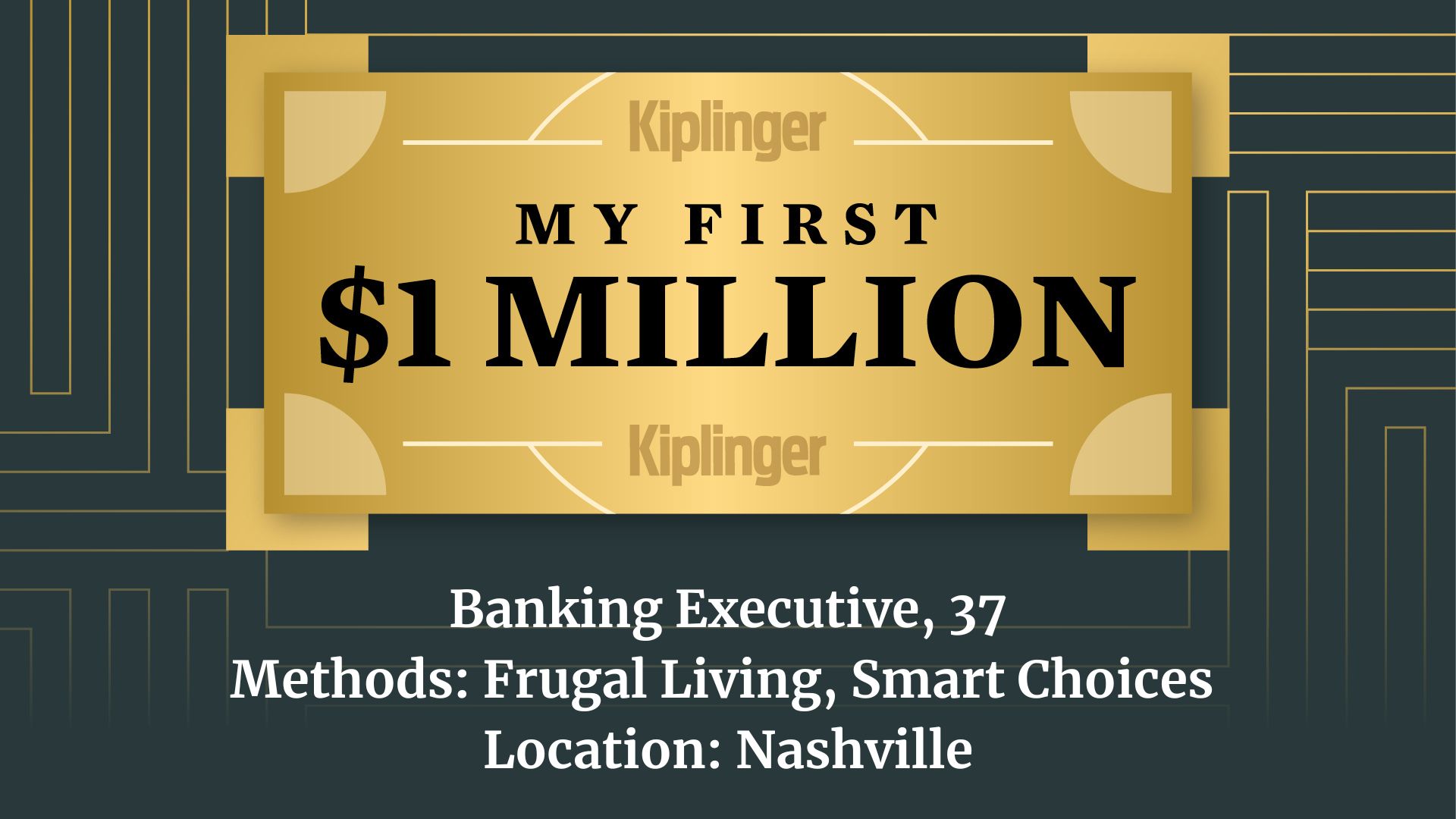Eight Ways to Stay Safe When Making Cashless Payments
Consumers are ditching cash for the convenience of digital payments, but fraudsters are right behind you. Just a few simple steps can help you stay safe.


Profit and prosper with the best of Kiplinger's advice on investing, taxes, retirement, personal finance and much more. Delivered daily. Enter your email in the box and click Sign Me Up.
You are now subscribed
Your newsletter sign-up was successful
Want to add more newsletters?
We manage more of our financial lives through screens than ever before. We tap phones to pay for purchases and use apps instead of cash.
Digital payments are fast, convenient and arguably safer than carrying wads of cash, but with this speed and convenience comes an element of risk.
What happens when systems go down? Or, worse yet, what happens when someone breaks into the system?
From just $107.88 $24.99 for Kiplinger Personal Finance
Become a smarter, better informed investor. Subscribe from just $107.88 $24.99, plus get up to 4 Special Issues

Sign up for Kiplinger’s Free Newsletters
Profit and prosper with the best of expert advice on investing, taxes, retirement, personal finance and more - straight to your e-mail.
Profit and prosper with the best of expert advice - straight to your e-mail.
Scams, hacks and system failures continue to rise, but implementing a few smart habits can easily help you enjoy the convenience of digital payments with greater safety.
Kiplinger's Adviser Intel, formerly known as Building Wealth, is a curated network of trusted financial professionals who share expert insights on wealth building and preservation. Contributors, including fiduciary financial planners, wealth managers, CEOs and attorneys, provide actionable advice about retirement planning, estate planning, tax strategies and more. Experts are invited to contribute and do not pay to be included, so you can trust their advice is honest and valuable.
Digital payments are rising, but so is fraud
Whether you use Apple Pay at the grocery store or send money through an app to cover your share of dinner with friends, you're part of a massive shift. In 2024, more than 4.3 billion people used digital wallets worldwide. That number is expected to hit 5.8 billion by 2029.
As a result, more retailers are going cashless. Brick-and-mortar financial institutions continue to close at increasing rates as the financial world shifts toward online banking. And in places like Sweden, cash is already close to obsolete in everyday transactions.
Most Americans now use some form of digital payment. According to McKinsey’s 2024 Consumer Payments Survey, 92% of U.S. adults used digital payments last year, including mobile wallets, apps and contactless cards. That number keeps growing.
Unfortunately, fraud is growing, too. In 2024, the Federal Trade Commission reported a record $12.5 billion in consumer losses to fraud, an increase of 25% over the previous year.
Investment scams alone accounted for $5.7 billion. Identity theft, phishing and scams involving money transfer apps are becoming more frequent and more sophisticated.
Unlike a credit card, where you can dispute charges, money sent through a digital payment app is often gone for good unless the recipient returns the funds or the platform intervenes.
If you accidentally send money to the wrong person or a scammer, there's no easy way to get it back without initiating a time-consuming fraud investigation that may or may not be successful.
Eight ways to stay safe with digital payments
A few simple habits can help you enjoy the convenience of digital payments while lowering the threat of fraud.
Slow down before you send money. Whether you're paying someone for work or sending money to a friend, take an extra moment to verify their name, email address or phone number.
One wrong letter or number can send your money to a stranger, and in most cases, you won't be able to reverse the payment.
Turn on transaction alerts. Most banks and payment apps let you receive real-time notifications when money leaves your account. These alerts can help you spot fraud quickly, which is key to minimizing damage.
Use a strong lock on your phone. If your phone is lost or stolen, a fingerprint, Face ID or PIN can prevent someone from accessing your payment apps. You can also enable "remote wipe" features on Apple and Android devices, which let you erase your phone if it's gone for good.
Keep a little cash on hand. Digital payments don't always work, especially during power outages or service disruptions. A small amount of cash in your wallet ensures you won't be stuck in an emergency.
Looking for expert tips to grow and preserve your wealth? Sign up for Adviser Intel (formerly known as Building Wealth), our free, twice-weekly newsletter.
Don't click on suspicious links. Scammers can send fake texts or emails pretending to be your bank or payment provider. If you get a message asking you to "verify" a transaction or reset your password, don't click. Instead, go directly to your bank's app or official website.
Report fraud fast. If you notice a suspicious charge or lose your device (or if something simply feels "off"), contact your bank or provider right away. Most services have time limits for resolving fraud or recovering lost funds, and your own liability typically increases the longer you wait to report it.
Use two-factor authentication. This extra layer of security, usually a text message or authentication code, can prevent someone from logging into your accounts even if they have your password.
Update your devices. Software updates aren't just about new features — they often fix security vulnerabilities. Keep your phone and apps up to date to stay protected against the latest threats.
Stay in control
Technology moves quickly, and digital payments are only going to become more common. That's not a bad thing as long as you're not moving faster than your own security.
By building a few good habits now, you can stay a step ahead of fraudsters and keep your money where it belongs. Digital convenience is here to stay. Just make sure your guardrails are, too.
This article represents the opinion of Mitlin Financial Inc. It should not be construed as providing investment, legal, and/or tax advice. Investment advisory services offered through CWM, LLC, an SEC Registered Investment Advisor. Mitlin Financial is located at 140 Adams Avenue Ste. B-12 Hauppauge, NY 11788
Related Content
- The Most Common Venmo Scams — and How to Avoid Them
- 'Simple' Scam Messages May Fool Even The Most Discerning Eye — What to Know
- I've Been Scammed Twice: Here's How You Can Avoid That
- 10 Ways to Stay Safe From Grandparent Scams and Other Fraud, Courtesy of a Financial Planner
- 10 Worst Things to Keep in Your Wallet
Profit and prosper with the best of Kiplinger's advice on investing, taxes, retirement, personal finance and much more. Delivered daily. Enter your email in the box and click Sign Me Up.

Lawrence "Larry" Sprung, CFP®, CEPA®, is a husband, father, entrepreneur, award-winning adviser, author and mental health advocate. He is reshaping personal finance by fostering JOYful conversations around money. Larry founded Mitlin Financial, Inc., in 2004 with a focus on prioritizing the families they serve. The Mitlin name illustrates their culture as the firm is named in memory of Larry's wife's grandfather, Mitchell, and his mother, Linda.
-
 We're 64 with $4.3 million and can't agree on when to retire.
We're 64 with $4.3 million and can't agree on when to retire.I want to retire now and pay for health insurance until we get Medicare. My wife says we should work 10 more months. Who's right?
-
 Missed an RMD? How to Avoid That (and the Penalty) Next Time
Missed an RMD? How to Avoid That (and the Penalty) Next TimeIf you miss your RMDs, you could face a hefty fine. Here are four ways to stay on top of your payments — and on the right side of the IRS.
-
 What Really Happens in the First 30 Days After Someone Dies
What Really Happens in the First 30 Days After Someone DiesThe administrative requirements following a death move quickly. This is how to ensure your loved ones won't be plunged into chaos during a time of distress.
-
 Missed Your RMD? 4 Ways to Avoid Doing That Again (and Skip the IRS Penalties), From a Financial Planner
Missed Your RMD? 4 Ways to Avoid Doing That Again (and Skip the IRS Penalties), From a Financial PlannerIf you miss your RMDs, you could face a hefty fine. Here are four ways to stay on top of your payments — and on the right side of the IRS.
-
 What Really Happens in the First 30 Days After Someone Dies (and Where Families Get Stuck)
What Really Happens in the First 30 Days After Someone Dies (and Where Families Get Stuck)The administrative requirements following a death move quickly. This is how to ensure your loved ones won't be plunged into chaos during a time of distress.
-
 AI-Powered Investing in 2026: How Algorithms Will Shape Your Portfolio
AI-Powered Investing in 2026: How Algorithms Will Shape Your PortfolioAI is becoming a standard investing tool, as it helps cut through the noise, personalize portfolios and manage risk. That said, human oversight remains essential. Here's how it all works.
-
 If You'd Put $1,000 Into Caterpillar Stock 20 Years Ago, Here's What You'd Have Today
If You'd Put $1,000 Into Caterpillar Stock 20 Years Ago, Here's What You'd Have TodayCaterpillar stock has been a remarkably resilient market beater for a very long time.
-
 Good Stock Picking Gives This Primecap Odyssey Fund a Lift
Good Stock Picking Gives This Primecap Odyssey Fund a LiftOutsize exposure to an outperforming tech stock and a pair of drugmakers have boosted recent returns for the Primecap Odyssey Growth Fund.
-
 5 Laundry Habits That Are Costing You Money
5 Laundry Habits That Are Costing You MoneyYou might be flushing money down the drain if you have any of these laundry habits.
-
 More Tools to Build a Bond Ladder
More Tools to Build a Bond LadderVanguard aims to launch a line of target-maturity corporate bond ETFs.
-
 My First $1 Million: Banking Executive, 37, Nashville
My First $1 Million: Banking Executive, 37, NashvilleEver wonder how someone who's made a million dollars or more did it? Kiplinger's My First $1 Million series uncovers the answers.